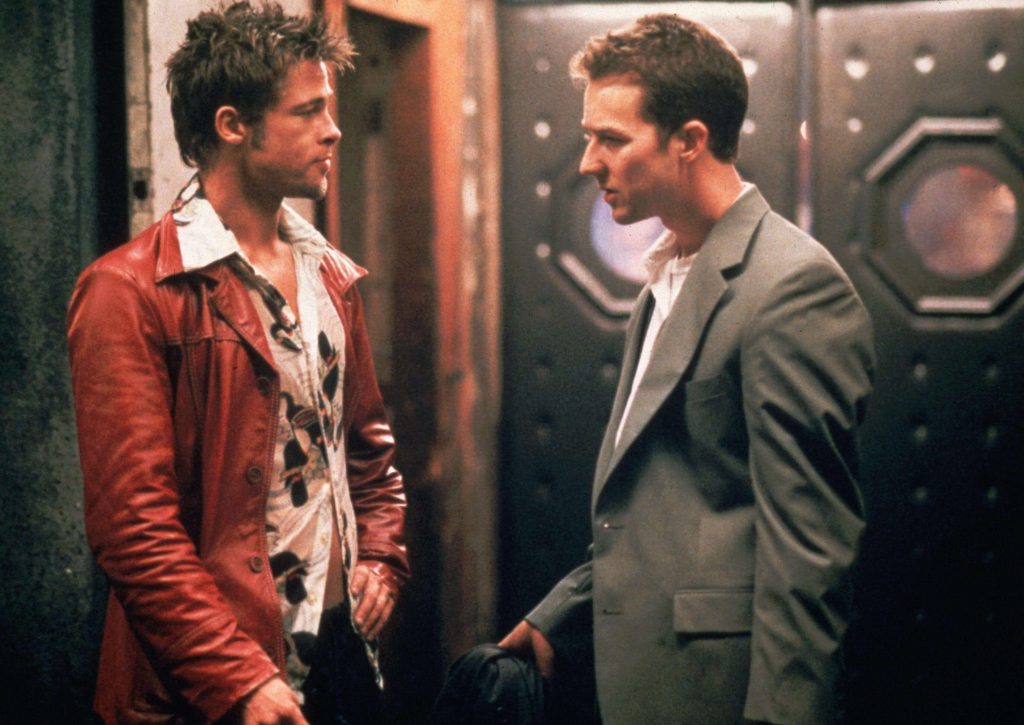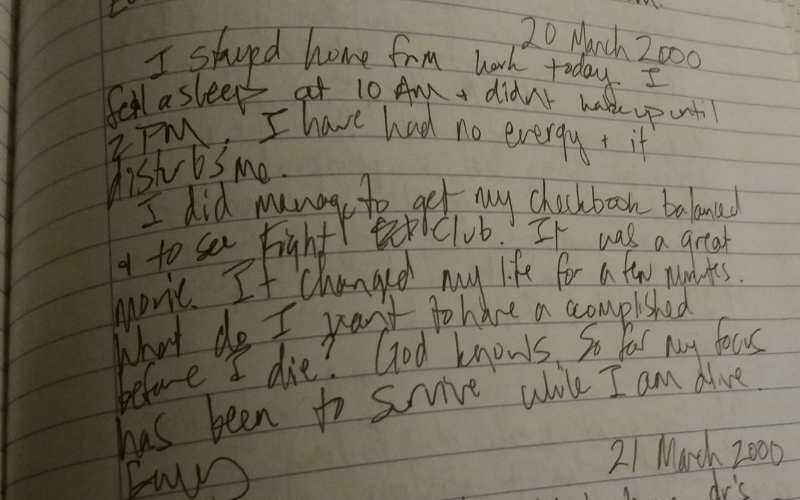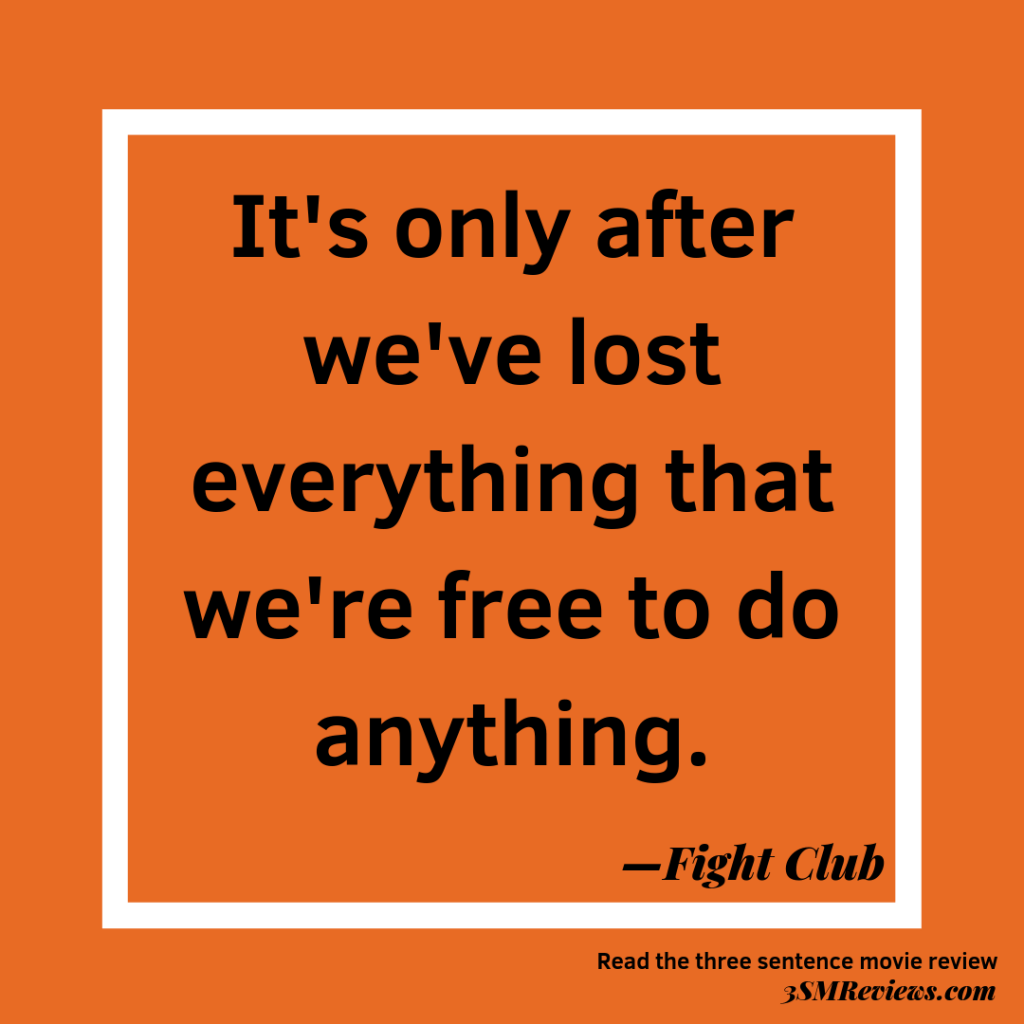
The review:
I hadn’t seen David Fincher’s Fight Club since 1999*, and wasn’t at all certain it would hold up, so I pressed play with some amount of trepidation. My trepidation vanished in the first few minutes and I found myself settling back into the feeling I remember the movie giving me the first time I watched it.** It’s violent, a bit terrifying, hilarious, runs at a breakneck pace, and might be both Edward Norton and Brad Pitt’s best performances*** and if you haven’t seen this film, get thee to a viewing.****
The verdict: Recommended
Cost: free from the Multnomah County Library
Where watched: at home, as part of Filmspotting’s 9 from ’99*****
Consider also watching these other fine Fincher films:
- Gone Girl
- The Social Network
- The Curious Case of Benjamin Button
- Zodiac
- Panic Room
- And of course, Paula Abdul’s Straight Up video
Further sentences:
*Or rather, since the year 2000, as the journal excerpt below proves.
**The feeling in question: This movie is awesome! I also want to be in a Fight Club! And also, no, I can see that it isn’t actually a good thing! But I still am enjoying myself tremendously watching this film.
***This movie also manages the impossible: it’s a movie about men doing men things that exclude women, its plot contains only one woman and she’s more of a plot point than a character, and yet still I find myself charmed. How does this film do that?
****It’s been 20 years since its release, so you probably know the twist. It’s still worth watching if you do.
*****And between this film, the Sixth Sense, and the Matrix the year 1999 was sending a very strong message that all was not as it seemed.
Favorite IMDB Trivia:
Author Chuck Palahniuk first came up with the idea for the novel after being beaten up on a camping trip when he complained to some nearby campers about the noise of their radio. When he returned to work, he was fascinated to find that nobody would mention or acknowledge his injuries, instead saying such commonplace things as “How was your weekend?” Palahniuk concluded that the reason people reacted this way was because if they asked him what had happened, a degree of personal interaction would be necessary, and his workmates simply didn’t care enough to connect with him on a personal level. It was his fascination with this societal ‘blocking’ which became the foundation for the novel.
Special bonus:
Excerpt from my journal the day I watched Fight Club:



Cute journal entry, sweetheart.
Thanks, cute boyfriend.